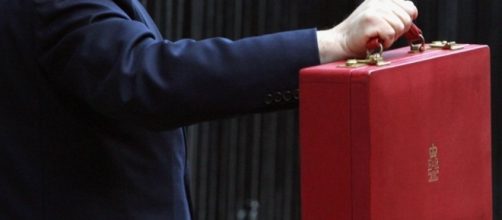So, the Autumn statement is finally here and Phillip Hammond releases his first Budget since being appointed as Chancellor in Theresa May's cabinet in July 2016. In amongst all the rhetoric, what does the budget actually mean for the British public?
Personal Allowance:
From 6th April 2017, the personal tax free allowance for workers will rise from its current level of £10,600 to £11,500. The Government has promised that this will continue to rise and will stand at £12,500 by 2020.
The Higher Rate Income Tax threshold will rise to £50,000 by 2020.
This currently stands at £42,700 for 2015/16, rising to £43,300 in 2017/18.
The tax savings on company in-kind benefits and salary sacrifice schemes is to be stopped, with a few exceptions, including childcare and cycling.
National Living Wage:
The NLW is set to rise from £7.20 to £7.50 for over 25s from April 2017. There is no change to the National Minimum Wage for workers under the age of 25, although this will rise again in April 2017.
Workers in the public sector will have a 1% rise in salary until 2019-2020, when another deal is likely to be negotiated.
Drivers:
Although there will be a seventh straight year with a freeze on Fuel Duty, there will be an increase in Premium Insurance Tax from 10% to 12%, which will see bills rise and potentially negate any saving at the pumps.
The increase is being used to generate revenue for the Exchequer.
Families:
From September 2017, parents working in excess of 16 hours each week (and earning less than £100,000 per year), will be entitled to claim an extra 15 hours of childcare in addition to those they already have.
However, families considering expanding to include a third child born after April 2017, will no longer have access to claim Child Tax Credits. This can be worth anything up to £2,000 for each subsequent child.
Benefits:
Already a source of much controversy, the Autumn statement picks up where former Chancellor, George Osborne, left off. Universal Credit, which is the benefit currently being rolled out across the UK to replace the majority of legacy benefits, has already been subject to cuts since its introduction.
There has been a slight change in the taper rate, which currently stands at 65p in every pound above the Work Allowance (the amount claimants can earn before their benefit is impacted) and this will reduce to 63p, allowing an additional earning of 2p in each pound.
The Benefit Cap was also put in place prior to this statement and these conditions remain in place for the majority of working age people across the UK . The current cap sits at £20k for couples with or without children living with them; single people who do have children living with them, and £13,400 for single people who don't have kids, or have children that don't live with them (these figures are for everywhere outside London).
The #Chancellor has stated that there are no more planned benefit cuts in this Parliament.
Beer, Wine and Spirits:
If nothing else, there was no mention of an increases to the prices or duty for beer, wine or spirits. However, that's usually left for the main #budget in the Spring, so don't get your hopes up too high...

